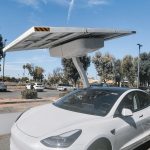Significant movement is unfolding in the field of vehicle autonomy, as major investors focus on software platforms powering intelligent vehicles. The mounting interest in automation extends beyond cars, as industries such as defense, trucking, and agriculture increasingly seek reliable solutions for integrating artificial intelligence. Applied Intuition’s latest fundraising round reflects this momentum and positions the company to support technological advancements on a global scale. With competition accelerating, strategic investments now play a crucial role in determining which players will shape the future of autonomous mobility.
In earlier years, reports highlighted Applied Intuition’s progress with smaller funding rounds and a more limited market presence. Strategic partnerships, such as those with OpenAI, Porsche, and Audi, were in their early stages and not as publicized. While mentions of autonomy stacks and tools like Vehicle OS appeared, the focus was on prototype development for select automotive clients. The current investment marks a significant increase in both valuation and project scale, underscoring a shift toward broader market adoption and a wider portfolio of clients, including defense and industrial sectors. The addition of global offices and product expansion, along with competitive acquisitions, represents a marked acceleration from prior phases.
What Drives the Latest Investment Surge?
Applied Intuition announced a $600 million Series F funding round, valuing the company at $15 billion. This investment will fund further research in vehicle intelligence, enhance their software suite, and drive international team growth. BlackRock-managed funds and Kleiner Perkins led the funding, joined by institutional stakeholders such as Franklin Templeton and Qatar Investment Authority. Existing partners like Fidelity Management & Research Company and General Catalyst also increased their commitments, signalling confidence in the company’s direction.
How Is Applied Intuition Expanding Its Reach?
As part of its strategic expansion, Applied Intuition reported several major developments, including the launch of its off-road autonomy stack and the acquisition of defense technology firm EpiSci. New products, such as Axion and Acuity, were introduced for defense customers, and global offices were established in locations like the UK. Partnerships with brands including TRATON, Isuzu, Porsche, and Audi accelerated product rollout and solidified the company’s presence across multiple industry verticals.
Why Do Stakeholders See Long-Term Potential?
Investors and company leadership highlight a vision beyond personal vehicles. Significant capital injections will support projects spanning defense, construction, and mining, in addition to automotive and trucking.
“We’re scaling up our investments in bringing intelligence into every moving machine. Everything from cars and trucks to drones and factories will be powered by AI, and our mission is to connect AI with the physical world it will transform,”
said Qasar Younis, CEO. The direction points to software-defined systems capable of adapting quickly to emerging market requirements.
Applied Intuition’s trajectory has shifted from building foundational infrastructure to accelerating deployment across industries. The company offers Vehicle OS and autonomy stacks, which appeal to clients seeking reliable, scalable autonomous solutions. Its Mountain View headquarters coordinates with offices worldwide, reflecting an emphasis on localized expertise and rapid response. Industry analysts will be observing how product and leadership decisions made during this funding round materialize in technological and commercial milestones.
In the context of growing global interest in intelligent mobility, Applied Intuition’s fundraising development offers several insights. Competition among platform providers has intensified, with funding levels and partnerships now critical in establishing market advantage. Companies seeking to deploy autonomous technologies should monitor the evolving landscape, considering both legacy players and new entrants. An understanding of investor priorities, product advancements, and geographical reach is vital for strategic positioning. The link between capital access and innovation speed remains central, as successful projects are backed by both technical talent and sustained financial support. Clients exploring Vehicle OS or similar stacks should weigh technical adaptability, partner ecosystems, and future upgrade capabilities as part of procurement and integration planning.










